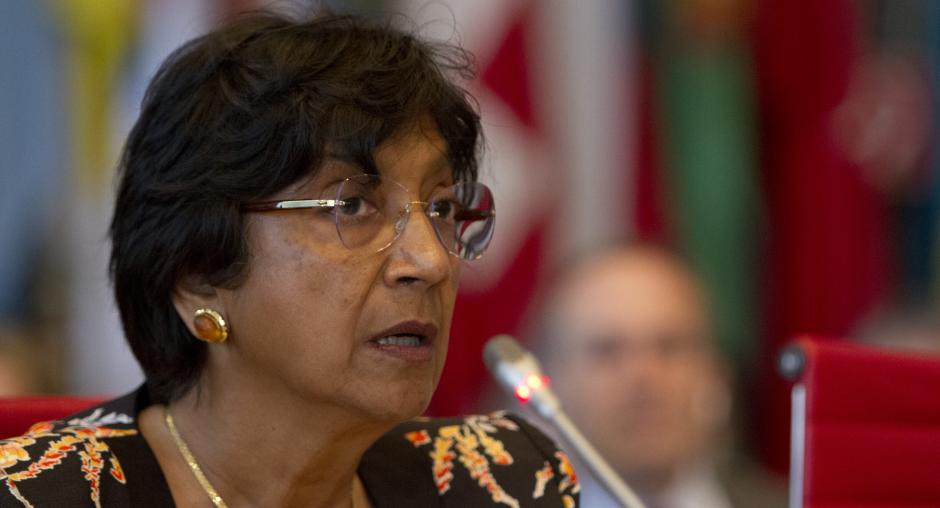Human rights violations root causes of instability, UN High Commissioner Navi Pillay tells OSCE

UN High Commissioner for Human Rights (UNHCHR) Navi Pillay addressed the OSCE Permanent Council on 3 July 2014 to mark the deeper co-operation between her office and OSCE.
“Human rights violations are among the root causes of every form of insecurity and instability. Failure to ensure good governance, the equitable rule of law and inclusive social justice and development can trigger conflict, as well as economic, political and social turmoil,” said Pillay.
Talking about the co-operation between her Office and the OSCE, she said: “The work of our two organizations is complementary.” Pillay outlined areas where “sustained, joined effort by our organizations can heighten our positive impact on people’s lives”, such as promotion of equality, free and critical press, a dynamic civil society, economic development, corruption, fighting impunity and paying special attention to “forgotten right-holders” – the Roma, people with disabilities, migrants, and people living in disputed territories and suffering from protracted conflicts.
She called for increased synergies between the specialized expert bodies of the international human rights system, which have in-depth knowledge to offer precise, implementable and lasting solutions that can resolve conflicts.
Pillay stressed the importance of closer interaction between OHCHR and OSCE, recalling the successful co-operation regarding Ukraine’s crisis between the UN Human Rights Monitoring Mission in Ukraine and the OSCE’s Special Monitoring Mission.
Pillay praised the work of the Ambassador Lenarčič, outgoing Director of the OSCE Office for Democratic Institutions and Human Rights and congratulated the Office’s new Director Michael George Link on his appointment.
In conclusion, Pillay noted: “We will be enabling the people of the OSCE region to live lives that are safer and more peaceful, free from want and free from fear.”
The OSCE Permanent Council is one of the main regular decision-making bodies of the Organization bringing together representatives of all 57 OSCE participating States. It convenes weekly in Vienna to discuss developments in the OSCE area and to make decisions.
